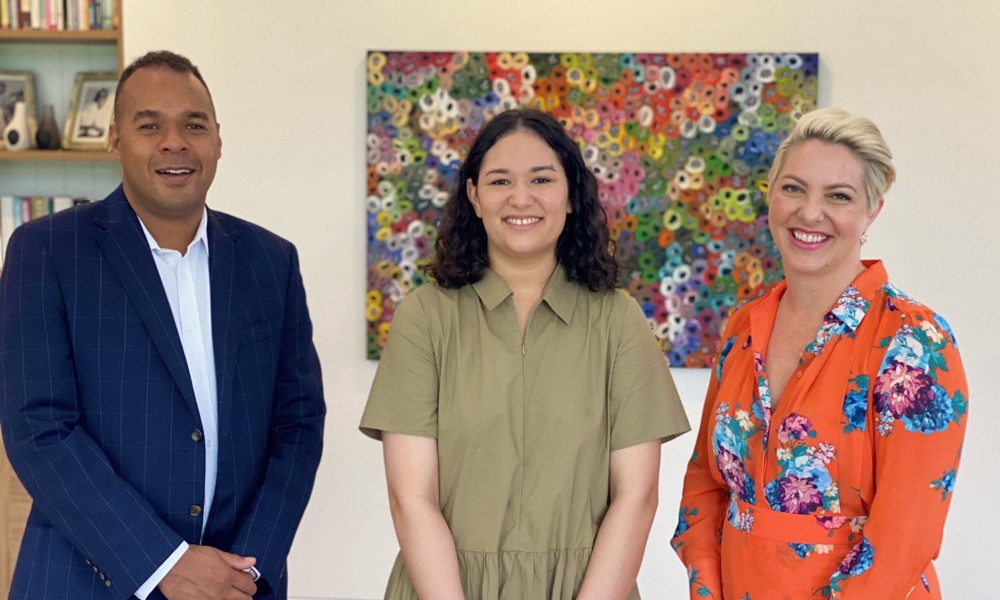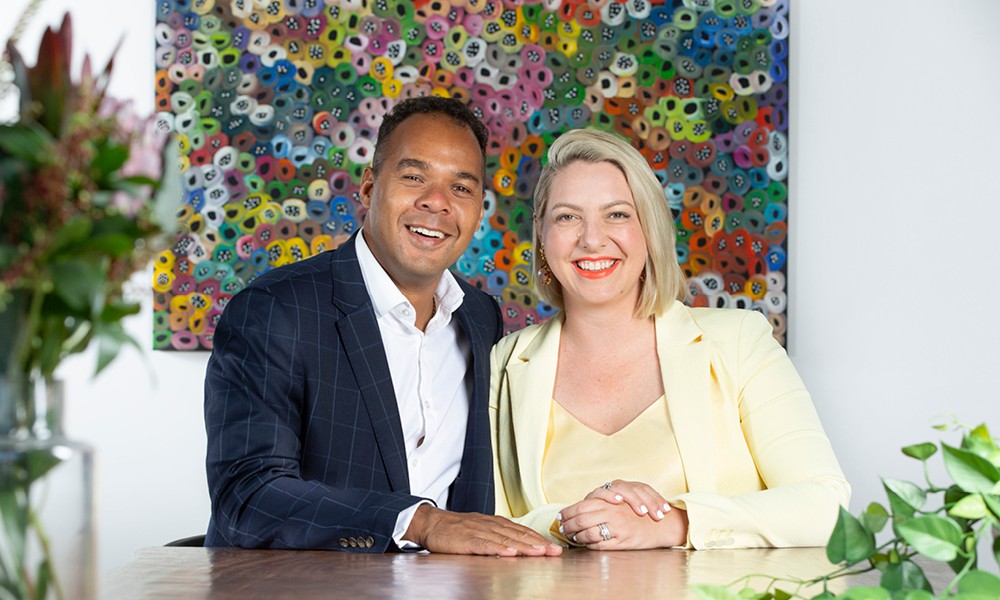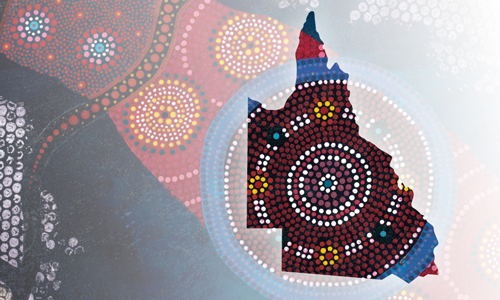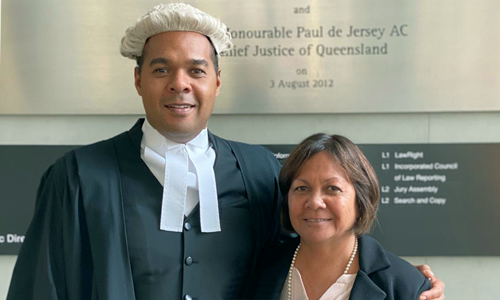Thank you for being part of history, the audience at the Truth Telling & Healing Inquiry Ceremonial Hearing in Brisbane was told yesterday.
First Nations cultural leader Edward Monaei addressed a packed Brisbane Convention & Exhibition Centre where the inquiry, which was established under the Path to Treaty Act 2023 (Qld), was given its spiritual wings.
Mr Monaei said the words “recognition”, “acknowledgement” and “identity” were “very simple but challenging” as he set the scene for the event, which was also livestreamed.
Aunty Deborah Sandy and Aunty Maroochy Barambah each issued a Welcome to Country, before Wagga Torres Strait Islander Group performed traditional dances and Pastor Albert Bowie led an opening prayer.
Inquiry Chairperson Joshua Creamer, flanked by members Cheryl Buchanan, Ivan Ingram, Vonda Malone and Roslyn Atkinson, then outlined the agenda and goals for the three-year investigation.
“Truth telling is not about dividing people, and in fact, it should be used as a tool to unite us,” Mr Creamer said.
“None of us here today is responsible for what occurred in days gone past. The object of the inquiry is to establish an authoritative public record about the past and its consequences, to enable an honest conversation about the past and what has been done and what we want for the future, and in doing so, to assist in the process of healing.”
The barrister and former Queensland Law Reform Commissioner acknowledged the elders present, saying the inquiry was the result of many decades of their work.
“Make no mistake that our opening here today is an historic moment in the history of this state,” he said.
“It rightly marks a turning point in the relations of Aboriginal peoples and Torres Strait Islander peoples, the Government of Queensland, and the Queensland community more generally.”
Wagga Torres Strait Islander Group members.
He said the inquiry was tasked with understanding the impacts of colonisation on First Nations peoples.
“In doing so, we must also ensure a deeper understanding of that history shared among Queenslanders in an effort to foster reconciliation,” he said.
“The inquiry is concerned with the past and the present, delivering a more complete picture of our past, and understanding the barriers that exist at present.”
Learnings from the inquiry will inform the First Nations Treaty Institute’s treaty-making process.
“The process of truth telling will help inform the Queensland community generally, and help heal the trauma suffered by Aboriginal peoples and Torres Strait Islander peoples as a result of colonisation,” Mr Creamer said.
He said it was important the inquiry was held now, but in many ways, should have been held earlier.
“The same reasons proffered in support of the Path to Treaty Act … and the establishment of this inquiry during the Act’s passing last year, still ring true today: the importance of an accurate historical record, increasing the public’s awareness of our history, understanding the effects of both intergenerational and direct trauma, and to improve on measures to close the gap in education, housing, health, employment and incarceration.”
Mr Creamer said it was important to start with elders.
“Each year we lose many of our elders who have lived under those regimes which we are now tasked with investigating,” he said.
“Fifty years ago, the inquiry could have heard from people who bear witness to the events in the late 1800s.
“Twenty years ago, an inquiry could have interviewed witnesses like my grandfather, who were born in the early 1900s.
“Today the direct evidence of witnesses will stretch back to the mid ‘50s and ‘40s.
“Tomorrow those memories and that direct evidence which will be imperative in formulating our findings will be lost to the sands of time.”
Mr Creamer said the evidence would not be based on oral testimony alone.
He said early inquiry work had indicated there were more than 200,000 items in the Queensland State Archives to be reviewed, and 4000 artefacts which may be relevant, with other sources of information to include the State Library, Queensland Museum, universities, historical societies and personal records in people’s homes.
He said there would be three phases of work for the inquiry: travelling to collect evidence from those with lived experience; accepting submissions and examining the role of role of government and non-government organisations, and faith-based organisations; and compiling learnings and recommendations into a final report.
All of this work would be culturally informed and trauma informed, and carried out with informed consent, he said.
“Our terms of reference are clear: to strengthen the relationship between non-indigenous people and Aboriginal peoples and Torres Strait Islander peoples, (and) foster reconciliation and a deeper respect for Aboriginal and Torres Strait Islander culture, history and experience that transcends generations.
“It’s a simple, yet clear message of the important role truth telling can play in healing and empowering Aboriginal and Torres Strait Islanders bringing together all Queensland on a path to reconciliation”
The inquiry will begin gathering evidence tomorrow.












Share this article